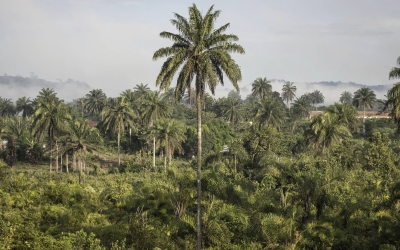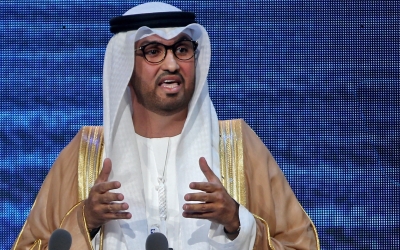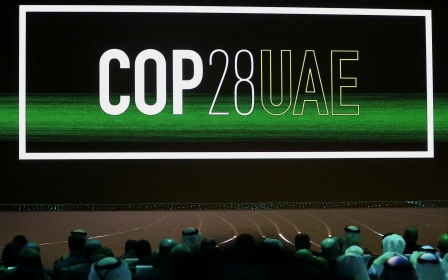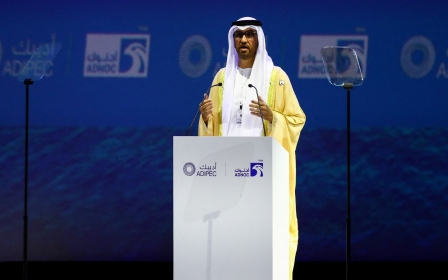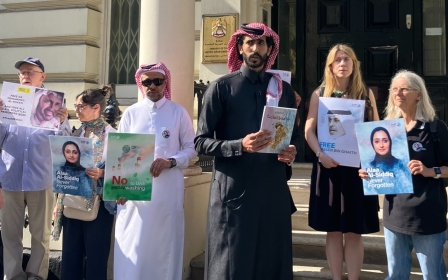Emiratis pledge $450m in carbon credit deal at 'toxic' Africa Climate Summit
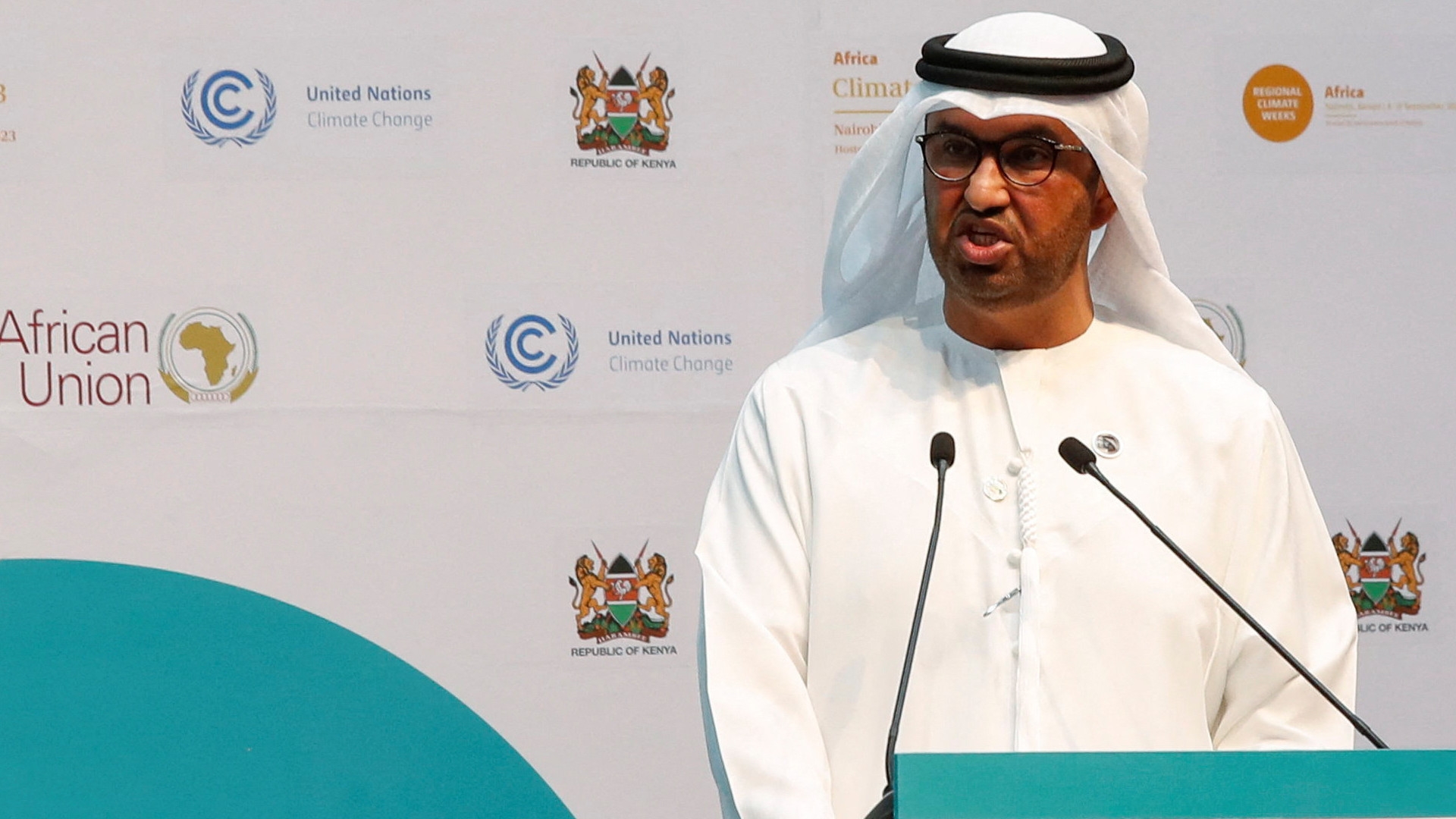
Emirati investors pledged to buy $450m of carbon credits from the Africa Carbon Markets Initiative (ACMI), an entity intended to boost Africa’s carbon credit production, at the inaugural Africa Climate Summit.
The three-day summit has been branded a "toxic space" by environmental campaigners.
It was held this week in Nairobi, Kenya, ahead of the approaching UN Climate Summit, Cop 28, slated to take place in Dubai in November.
The non-binding letter of intent was signed by the UAE Carbon Alliance, a coalition of private entities launched last year with the purpose of “recognising the importance of carbon credits to achieve net zero goals”.
The UAE is fast becoming the leading investor in the African carbon market, a trading system in which carbon credits (also known as offsets) are bought and sold to offset emissions.
New MEE newsletter: Jerusalem Dispatch
Sign up to get the latest insights and analysis on Israel-Palestine, alongside Turkey Unpacked and other MEE newsletters
Sultan Al Jaber, who will preside over the upcoming UN climate summit, is chief executive of the Abu Dhabi National Oil Company and a key proponent of carbon trading.
While acknowledging the market’s “crisis of confidence”, a slump in response to mounting evidence indicating that many carbon credits have “no environmental worth, Jaber attributed the fault in the system to a lack “of a commonly agreed standard”.
A 'toxic space'
According to grassroots African campaigners attending the Africa Climate Summit, the drive for market-based financing instruments was fuelled by foreign interests and eclipsed the voices of non-state actors.
“Before we came, we already knew that this would be a toxic space because of the agenda that’s being pushed by the African government and global north leaders,” Friends of the Earth Africa Climate Justice and Energy programme coordinator Maimoni Mariere Ubrei-Joe told Middle East Eye.
In an open letter to President William Ruto, chair of the Committee of African Heads of State and Government on Climate Change (CAHOSCC), 500 NGOs condemned the summit’s “pro-West” agenda, shaped by private consultancy firms such as US-headquartered McKinsey, which has shunted African interests “on the back burner”.
The Pan African Climate Justice Alliance (PACJA) claimed that summit organisers “deliberately” failed to ensure participation from non-state actors in the planning and implementation of the summit.
Despite this, youth climate activists staged protests throughout the summit.
“As African youth, we are demanding African solutions, because we are the [most] affected by the crisis,” Tard Foundation and Rise Up Movement activist Eriga Reagan Elijah told MEE.
'Pollution permit'
The ACMI, which was launched last year at COP 27, aims to generate 300 million voluntary carbon credits per year by 2030 and 1.5 billion credits annually by 2050.
African campaign groups have condemned the initiative as “a wolf in sheep’s clothing”, effectively serving as a “pollution permit” for major emitters.
A report by Powershift Africa found that the ACMI’s growth target would allow big private companies to emit an additional 1.5-2.5 gigatonnes of CO2e (the equivalent of CO2) per year by 2050.
Additionally, carbon credit production carries the risk of human rights abuses, resulting in “land grabs” in order to implement the projects.
In Uganda, the UK-based New Forests Company evicted 10,000 people in the Mubende district to make way for a reforestation project.
Earlier this year, Emirati carbon trading company Blue Carbon signed a series of deals with Tanzania, Liberia and Zambia, giving them blanket control over 24.5 million hectares of land and violating customary land rights of local communities.
This week’s summit culminated in the adoption of the Nairobi declaration, which called for "a new financing architecture that is responsive to Africa's needs, including debt restructuring and relief".
Dangerous clauses
However, civil actors have criticised the declaration for falling parlously short of what was needed for a just transition in Africa.
In a statement in response to the declaration, Friends of the Earth Africa highlighted the inclusion of “dangerous clauses” in the document, including a stipulation that coal should be “phased down” rather than “out” and no reference to the curtailing of oil and gas production.
Another clause refers to the need to “implement a mix of measures that elevate Africa’s share of carbon markets”.
Additionally, while the statement calls for an annual climate reparation payment of $100bn from developed nations, it lacks detail on how these funds will be used.
“We expected the African governments… to chart a course for addressing extreme [weather] events, but as you can see from the declaration, this was not the case” FoE Africa spokesperson Babawale Obayanju told MEE.
“So when the money and technology come into the Loss and Damage Fund… how will they trickle down to those who are impacted?”
Middle East Eye delivers independent and unrivalled coverage and analysis of the Middle East, North Africa and beyond. To learn more about republishing this content and the associated fees, please fill out this form. More about MEE can be found here.


